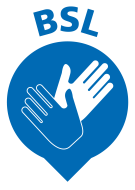Today, (8 July) is International Paramedics Day, an opportunity for us to celebrate our fantastic workforce.
North East Ambulance Service (NEAS) employs more than 850 paramedics form part of the #TeamNEAS family, all playing their part in different ways across our organisation to help us provide the best possible care to our patients.
This year’s theme is ‘the difference we make’ and to celebrate the range of roles across paramedicine, a variety of paramedics from across our organisation have shared their career journey and what they see for the future of paramedicine.
Kyle Peebles:
I have worked at NEAS for nine years in total, starting in patient transport and working my way up to qualifying as a 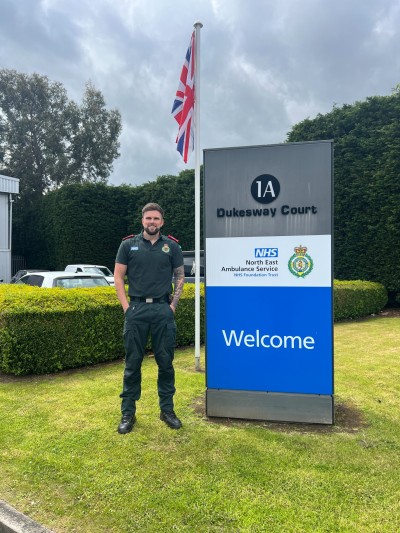
I enjoy working in for the ambulance service because I am in a unique privileged position which allows me to care for and ease patients during what could be the worst day of their life.
We are in privileged position where we can make a difference to every patient we care for. For what could seem like a little act of kindness to some to others it could mean the world to them.
The reason I wanted to join the ambulance service was because when I was younger, my sister who suffers with MS (multiple sclerosis) had an ambulance attend to her when she was really unwell prior the diagnosis. The care that they gave were second to none so that planted a little seed in my head of what I wanted to be when I was older.
I am proud to wear the uniform and love putting it on just as much as I did when I put it on for the first time.
Beth Felgate:
I qualified as a paramedic last year and started working for NEAS in October 2023 at Coulby Newham.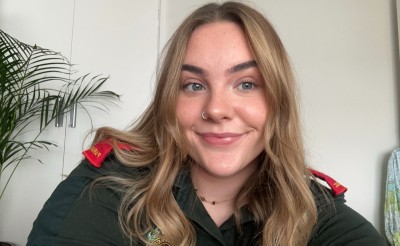
I initially became interested in becoming a paramedic after the experiences I had growing up when they attended my Nana. Throughout these times, I got to experience the role of the paramedic, their skills, and how positive their influence can be on patients. It was from there I became interested, I wanted to give back in a way, but also care for people in need just as brilliantly as they did then.
As paramedics, we go from doing something as little as making a cup of tea for an elderly patient, or being a shoulder to cry on, to performing lifesaving skills and dealing with the most time critical of patients. Whilst putting my patients in the centre of care, I find myself making a difference one patient at a time, and that to me is very rewarding and fulfilling.
I enjoy working within paramedicine and NEAS because it is so rewarding and diverse. No day is the same! I enjoy caring for patients and making a difference, no matter how big or small. I look to specialise within my areas of interest later down the line, as there are so many development opportunities available, but for now, I'm thoroughly enjoying my time on the front-line ambulances, caring for the public in their time of need.
The future of the paramedic profession is developing so quickly, and our scope of practice is becoming wider each day, I look forward to seeing the profession advance throughout my career. Anything is possible!
Vincent Potter:
I have worked for NEAS since 1987, which also includes working in United Arab Emirates (UAE) for eight years to 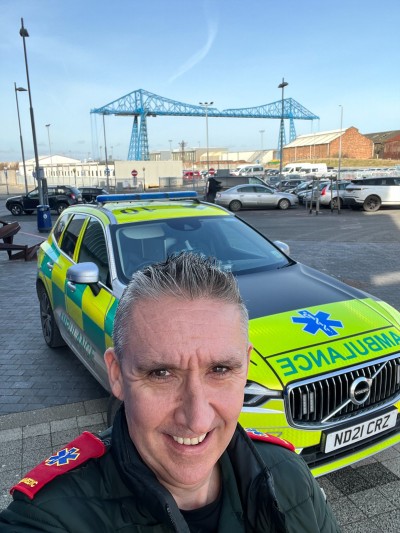
The reason I love being a paramedic is because I love helping people, I genuinely have a big heart. Being able to be there and help people in their darkest moments is a big part of the job and something I take great pride in.
Experience and clinical knowledge make the perfect mix and with appropriate safety netting, NEAS supports me which gives you confidence to think on your feet.
I also hope I am a role model to some of the new paramedics and for them to see how I am, how I work and how I lead with heart and soul. Ultimately, strength is unity for all.
Richard York:
I joined North East Ambulance Service in 2005 and, for the last five years, has been part of our community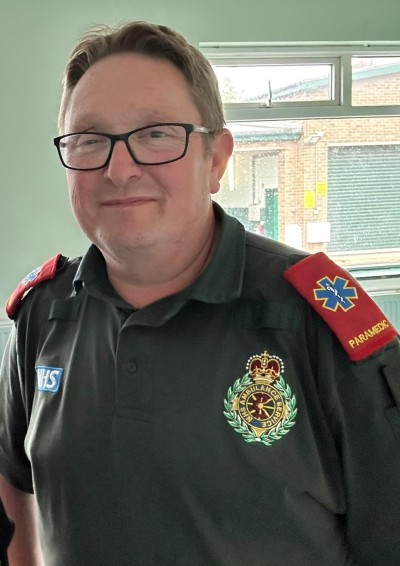
In this role, I feel I can do more for my patients. We carry additional medication compared to normal ambulance crews and work as a team as part of the primary care network alongside GPs and district nurses in the area, pulling on each other’s knowledge to ensure our patients receive the right treatment for their needs and are cared for at home wherever possible without the need to go to hospital.
The great thing about this role is that we can revisit patients to check on them and many of them become more like friends.
Georgina Campbell
I am a clinical team leader (CTL) at NEAS and have worked here for six years.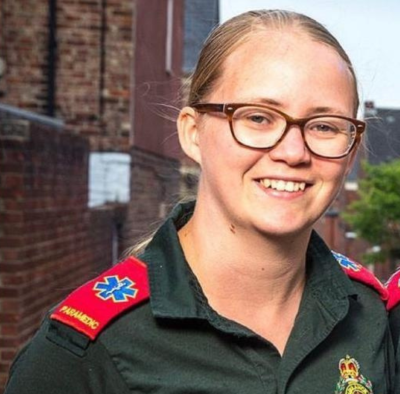
I enjoy being a paramedic because we can make a difference every day, even in very small ways. We have a unique insight into people's lives and the chance to make the worst situations better.
The CTL role makes a difference to patients because we support staff in making decisions regarding some of the most complex cases. We help colleagues stay safe and well to provide excellent care to service users. We also provide senior clinical support to patients when required.
The future of the paramedic profession is very exciting, with ever increasing opportunities to develop both within the ambulance service and in other healthcare settings. The education of paramedics is constantly evolving to suit the needs of our patients and we are now working across a huge range of settings to bring our skills to teams. Within NEAS, there are a number of new positions creating more opportunities for paramedics to develop within the service and progress both clinically and in management roles.
The paramedic profession plays an integral role in both emergency and urgent care. We are the gatekeepers of the NHS and are often the first point of contact for patients in an emergency. We also play a vital role in supporting our primary care colleagues in admission avoidance and referral to alternative care providers.
Alan Potts
I had the pleasure of working previously for Northern Ireland Ambulance Service (NIAS) as an Emergency 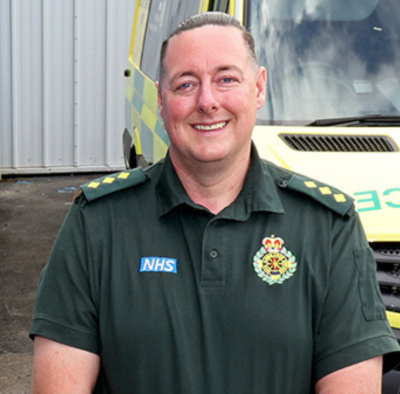
When I joined NEAS, I worked on Dual Crewed Ambulances (DCAs) and Rapid Response Vehicles (RRVs) prior to moving to be a Paramedic Mentor on a dedicated Training Vehicle. This is always such a privilege.
In late-2015, I secured an opportunity as an emergency care clinical manager (ECCM) and joined the team at Bishop Auckland cluster. I really enjoyed this role. In mid-2017, I then secured a post as an assistant clinical service manager (ACSM) which then became a clinical operations manager (COM) working within south division (Stockton cluster). I loved this role also. In mid-2021, I took up my current role of EPRR training manager. This is a fantastic role within a truly excellent team.
Primarily, I love being a paramedic and will always be proud to be one. I enjoy the variety and opportunity that being a paramedic and working for ambulance services has afforded me throughout my career. I’ve been fortunate to be able to work in and with so many excellent teams and with so many amazing colleagues. It is always a privilege to be able to serve our communities and treat our patients.
As the EPRR training manager, my role gives me opportunities to equip our colleagues with additional specialist skills to operate at incidents involving Chemical, Biological, Radiological, Nuclear, explosives (CBRNe) or Marauding Terrorist Attack (MTA). This is hugely important when we strive to deliver the best patient care during the most challenging circumstances. Preparing our specialist teams for the challenging times they might experience as part of their role, helps to ensure that they are ready to provide their very best response to our patients, when these incidents occur. Promoting and developing the better inter-working of all staff, SORT, HART, Commanders and external partner agencies, is crucial to success.
As the EPRR Training Manager, I must ensure that the training delivered to our specialist staff and external partner agencies is fit-for-purpose. This includes being aligned with National Training Packages and Training Information Sheets (TIS). This also includes working with colleagues to make sure that Specialist Operations Response Team (SORT) and Commander Training is delivered to the highest standard. As our patients are positioned at the centre of everything we do, we must deliver training that should result in well-practised, more confident and competent NEAS Responders and Commanders. This ultimately impacts massively on patient care.
Given that there have been so many changes and progress to date with paramedicine since the 1970s, it is difficult to even imagine the world in the next ten years. With the College of Paramedics being granted the Royal Charter earlier this year, this underlines the key role that paramedics play in society and is a recognition for further progress.
The future of paramedicine for me though is I’d love to see more people get involved in paramedic programmes and have more opportunities to develop additional clinical and holistic skills. I’d also like to see the bonds between Paramedic and non-Paramedic roles be celebrated and enhanced more. Very little is achieved without a team approach. It’s not simply for paramedics to be recognised and appreciated. NEAS needs to be one big team.
Stu Holliday
I enjoy working for NEAS as I truly believe I can make a positive impact on patient care in the North East, 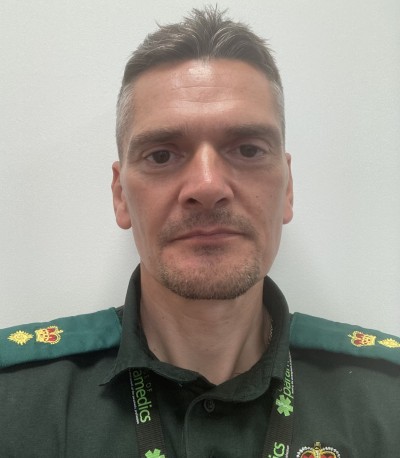
My role at NEAS is strategic head of EPRR (Emergency Preparedness, Resilience and Response) which ensures that we have plans in place to respond to complex events, from pandemics to airport alerts, major incidents and issues which could prevent NEAS from delivering its business as usual.
Through HART (Hazardous Area Response Team) and the SPCC's (Specialist Paramedic Critical Care), the department directly provides high quality patient care in some of the most challenging care episodes, and through the Operational Command Centre ensures that, whatever the pressures in the hospitals, NEAS crews and patients are kept at the forefront of escalation plans. EPRR managers liaise with partner agencies, event providers and national bodies to ensure we are prepared and exercised and that plans are robust, and the EPRR Training Team provide first class training at our resilience training centre for trust commanders and special operations response team volunteers.
The way my role instigates positive change for paramedicine is as a paramedic I always look for opportunities to advocate for the profession at any local or national forums with which I become involved. Through HART, SPCC in particular the department is supporting paramedics to extend their scope of practice and operating environment, technical and non-technical skills and giving a development option for paramedics in the Trust.
I think the future of paramedicine will involve a continued widening of scope and areas of practice, with more senior roles in urgent and critical care, and development into mental health services. I think point of care diagnostics and increased referral pathways will ensure that we deliver more care at home and get the patients who do need to go to secondary care direct entry to the right services.
My role helps better patient care is attending a variety of system meetings with wider health and social care, UK Health Security Agency and other responding agencies, principally looking a resilience, emergency planning and surges in demand (such as 'winter'). All of this planning aims to save life, minimise harm and deliver the best possible patient care at the times when the system is at its most strained.
Luke Morrison
I have been working for NEAS now for give years and my current role specialist paramedic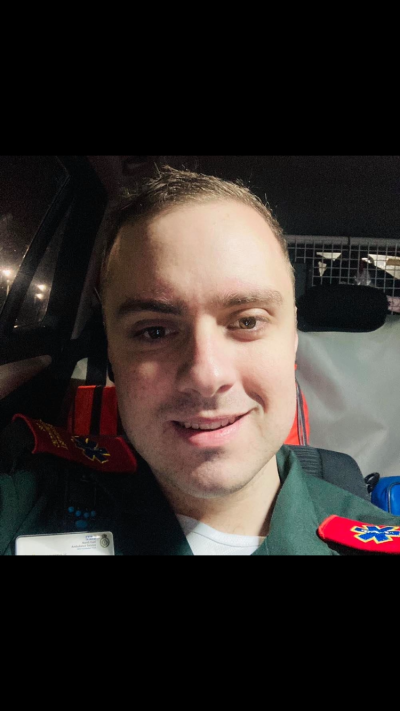
Paramedicine is one of few professions where you are able to truly observe 'life, death and everything in between'. Being able to help someone that was not able to help themselves is an incredible feeling and a feeling you share with your colleagues that is impossible to get in any other way.
I enjoy bringing my experience and knowledge to the scene of an emergency where I am able to help my colleagues (and them help me) to make difficult decisions that help deliver high level care for our patients. While my role sometimes involves delivery of medicines and the carrying out of interventions that are reserved for paramedics that are exposed to critically injured or ill patients it is largely one of decision making and support for our staff already on scene.
Critical care paramedics are pivotal in the delivery of high acuity, low opportunity interventions and medicines, we are able to demonstrate the necessity and safety of these interventions which is how we can in-turn pass on certain medicines or interventions to all paramedics for the benefit of our patients.
Paramedicine is unique in giving us unbridled access to people in our community at their most vulnerable moments in life. This is an incredible privilege not awarded to any other field of medicine, I see paramedicine continue to be integrated into the overall system of healthcare where paramedics find it much easier to be able to directly refer for tertiary level care for patients that require this. I see the requirement for degree level education that happened in 2021 start to pay dividends with more paramedics interested in research and governance allowing us to determine our own evidence-based destiny. An increase in specialisation is going to allow paramedicine to deliver care in the community that we didn't believe possible a decade ago.
I am incredibly proud of the work we do when the patient needs us the most.
Interested in becoming a paramedic? Visit the careers page for more information.

